Animals
-
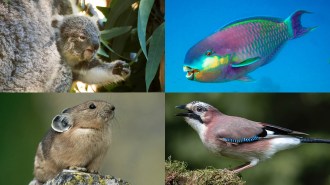 Animals
AnimalsPoop is on the menu for a surprising number of animals
A new tally finds dozens of species giving food a second go-round, from babies boosting their microbiomes to adults seeking easier-to-access nutrition.
By Susan Milius -
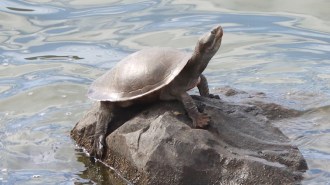 Animals
Animals‘Forever chemicals’ are causing health problems in some wildlife
Deformed scales in hatchlings and biomarkers indicative of disease progression are two health impacts on turtles at PFAS-polluted sites in Australia.
-
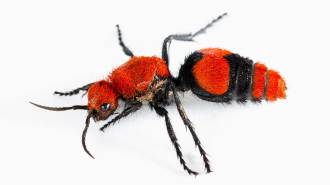 Animals
AnimalsVelvet ants have the Swiss Army knife of venoms
A velvet ant bite like “hot oil from the deep fryer” delivers an array of peptides that inflicts pain on insects and mammals alike.
By Amanda Heidt -
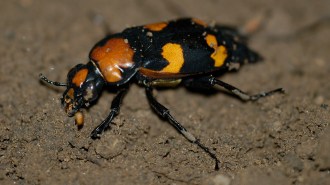 Animals
AnimalsAmerican burying beetles are making a comeback in Nebraska
Thanks to decades of conservation to restore private grasslands, numbers of the threatened insect are on the rise in the Loess Canyons.
-
 Health & Medicine
Health & MedicineDogs team up with AI to sniff out cancer
Scientists paired Labrador retrievers with an AI model in a new screening test for breast, lung, colorectal or prostate cancer.
By Meghan Rosen -
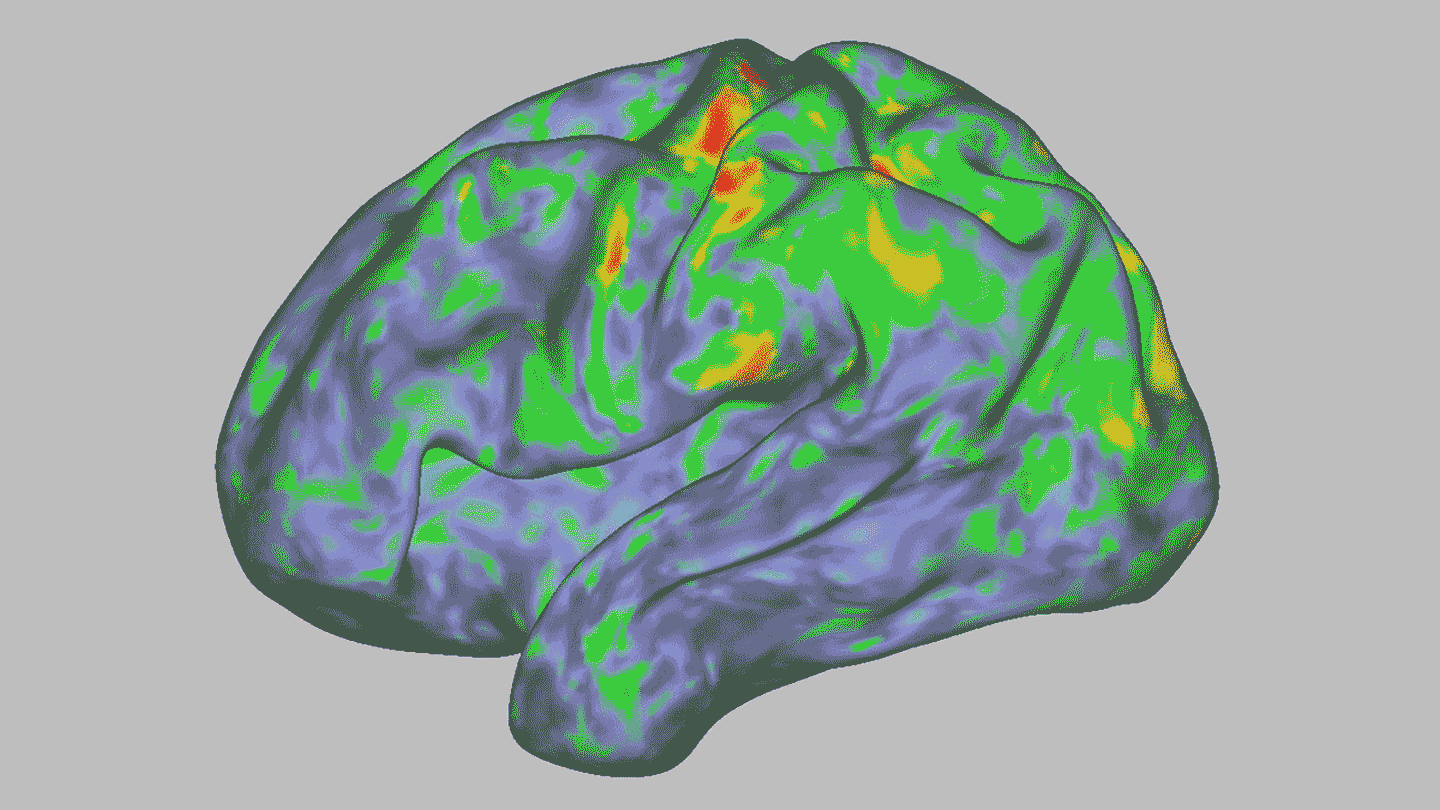 Science & Society
Science & SocietyThese are the 5 most popular Science News stories of 2024
Science News drew millions of visitors to our website this year. Here’s a recap of the most-read and most-watched news stories of 2024.
-
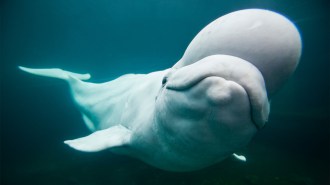 Life
LifeThese are our favorite animal stories of 2024
Pigeons that do somersaults, snakes that fake death with extra flair and surprised canines are among the organisms that enthralled the Science News staff.
-
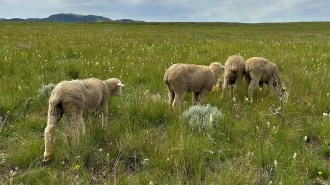 Life
LifeSheep earwax can record a dangerous diet
Sheep that eat death camas plants record the toxic meal in their earwax, a goopy health data repository that researchers are increasingly exploring.
By Jake Buehler -
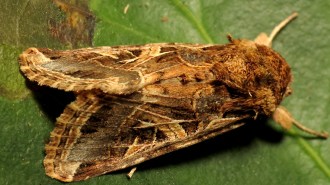 Animals
AnimalsThe screams of thirsty plants may prompt some moths to lay eggs elsewhere
Female moths may pick up on the ultrasonic wailing of distressed plants and opt to lay their eggs on different, healthier plants.
By Jake Buehler -
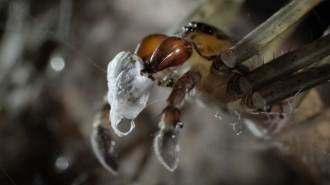 Animals
AnimalsClimate stress may undermine male spiders’ romantic gift giving
Even spider love lives show an effect of climate uncertainty: Stressed males may offer a bit of silk-wrapped junk rather than a tasty insect treat.
By Susan Milius -
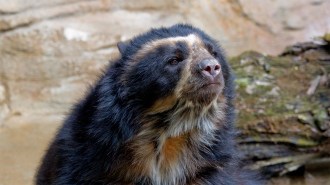 Ecosystems
EcosystemsNew videos reveal the hidden lives of Andean bears
The footage give clues to the range of plants the bears eat and how they mate, information important for conservation.
-
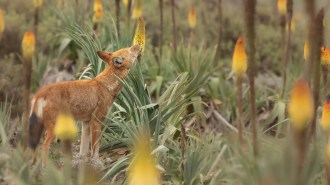 Animals
AnimalsEthiopian wolves are the first large carnivores found to slurp nectar
Wolves from three different packs were seen licking red hot poker flowers. That sweet tooth could make them the first known large predator pollinators.